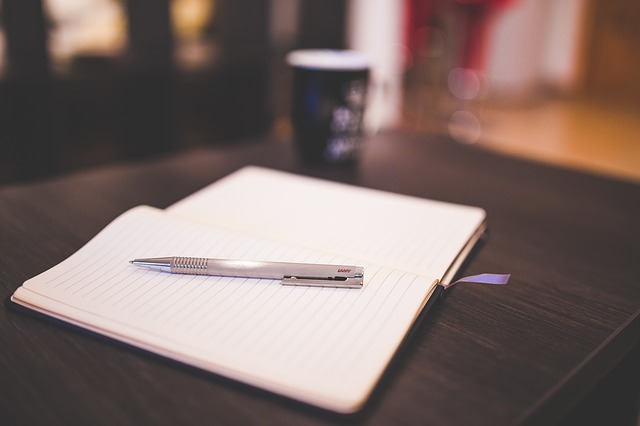Let me tell you a secret… I love this world we’re living in right now!
Before you say, “Good on ya mate, good for you. Sorry, but not all of us can wake up and smell the roses!” you need to understand where I’ve been. If you’ve had a look through my website, you will know that I’ve had a relatively rough trot over the last decade plus. But despite all of my physical setbacks, I can still manage to be happy. Yes there’s a tiny bit of luck in there, some good fortune and a whole lot of grit, but I attribute some of it to gratitude. In this post, I’m going to tell you why and how you can be grateful too.
Gratitude for What We Have
First of all, let‘s understand what gratitude is all about. One form of gratitude is about being thankful for the things we DO have, rather than getting down about the things we DON’T have. When overcoming adversity this is really important. I could sit here and tell you about all the things I don’t have in my life because of my accident, until I’m black and blue in the face. I could tell you that I miss the days when I could put the call out, and on any given weekend take my dirt bike out and go for a ride with my mates. I could tell you that I miss the days that I could run out onto the indoor soccer court with my mates. I could tell you I miss the days that I could go down to the park and kick the footy with my mates. Go out on the tennis court and hit a tennis ball with my mates. Hit a cricket ball, volleyball, or play any ball sports with my mates. I could tell you how much I miss the camaraderie of doing all sports, with my mates. These days, none of this can happen. My hip flexors are so bad that I can’t even ride a two-wheeled bike anymore. Did I mention that wakeboarding behind a boat is hard with one hand? Well yeah… it’s hard!
All this is true, and I don’t for one-minute turn my back and pretend it’s not happening, but I don’t focus on these things. Instead, I look at the things in my life that I still have. Yes, I only have one working are, but I know there are many people in this world that aren’t so lucky. I couldn’t imagine how hard my life would be if I had both taken away from me. On my damaged arm, I have a (somewhat) functioning hand; most people with my injury don’t. It means I can carry shopping bags in my hand, or I can stabilise a piece of bread to butter it or even slowly tie my shoelaces. I’m grateful for this.
My right leg doesn’t work as well as the next person, but it still works, adding to my independence and not confining me to a wheelchair. For that I’m grateful.
I sometimes find it hard to articulate my thoughts, but at least I still have ideas. I have met people that have brain damage to the extent where they can’t even talk, let alone think. That could have been me. Grateful? You bet I am!
Gratitude Towards Others
Another form of gratitude is for the people around us. If I show gratitude towards you, you feel more connected to me, and social connection is, I believe, one of the most important emotions we have. Social connection creates happiness. I know this from the times I’ve been disconnected from society. Those days of loneliness were some if my darkest I’ve ever had.
If someone has done something for us, this means that person has intentionally done something to improve our lives. If someone has done something to improve our lives that means we’re worth something to them right?
Well BOOM, our self-worth just went up. This increase in self-worth then leads to an increase in confidence, which leads to better overall wellbeing. There have been many times throughout my recovery that I have felt somewhat worthless due to my disabilities, and this takes me down a very slippery slope. The feeling of worthlessness is the golden ticket to the dark chambers of depression. I know this because I’ve been there!
The Science
Don’t just believe me, though. If you want to delve deeper into this world, check out this article from
Or this article from
Or this study from
Or this article from
The Practice
We can cultivate gratitude into our lives in many different ways. You’ve probably heard of this before, and you may think that it all sounds a bit make-believe, but what have you got to lose?
To truly be grateful and get the benefits of gratitude, we need to condition our brains in such a way that we look at everything in life with a sense of appreciation. When we are grateful, we can feel it. It’s a tough feeling to describe, but the best description I can give you is it’s a warm feeling in your chest and a total sense of relaxation.
Unless you’ve been through something traumatic or been in a grim situation, it’s often not something we have at the forefront of our minds. Our brains aren’t conditioned to see the world this way. It’s often hard to imagine what the dark side is like if we’ve never been there. It is the same with gratitude; it’s hard to imagine what life would look like if we didn’t have the blessings we have, and trust me, if you’re still breathing, you’ve got blessings. Blessings that could change the world.
If our brains aren’t conditioned for gratitude, we need to condition them manually. One way is to start a gratitude journal. At the end of each day, write down a list of things that you were happy about that day. What this is doing is telling our brains how to act. It is a daily practice. It is not something we do now and then or when we feel like it. It needs to become a ritual. Our brains are like filters, and we only let in what we want to let in. We are in total control of it. This practice will help you to condition your filter to, eventually, let more positive emotions in and keep negative ones out.
Gratitude is a great practice to take into your classroom. You can download my gratitude journal HERE. Before you students start the day, ask them to write down or verbalise three things they are grateful for. One thing they are grateful for this year, this month and this week.
Another way is to do the same exercise at the dinner table each night with your family. Although my partner and I have more things to be grateful for than most, this is something we do to keep the gratitude juices flowing in our lives. Do this regularly enough, and congratulations, you’ve just learnt how to rewire your brain. Do this every day and don’t stop.
I hope this post has inspired you to start the practice of gratitude. Until next time.





